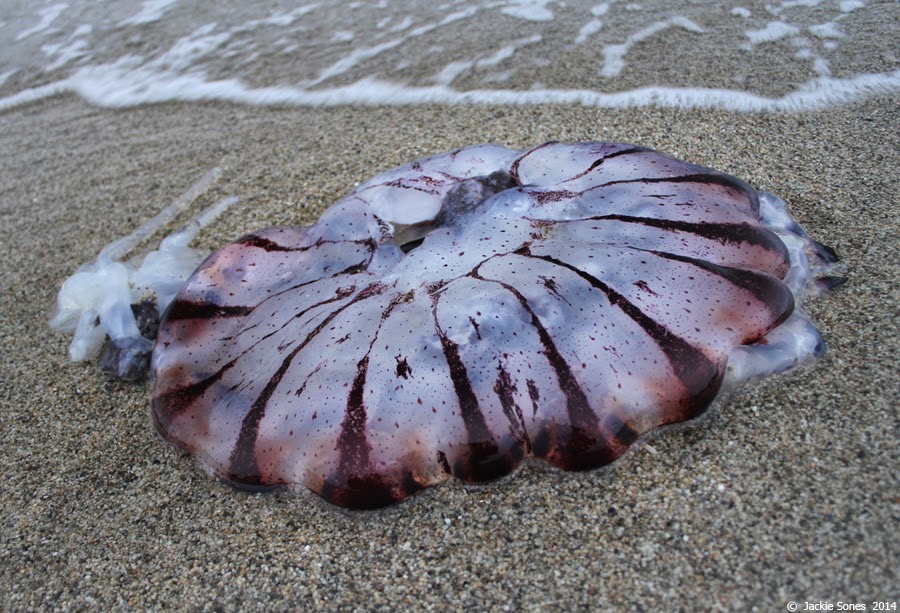If you've been following this blog for a little while, you might remember a story about some Bat Stars (Patiria miniata) that Eric raised last summer and that we followed until they were tiny juvenile sea stars in the fall — review the post from 22 September 2013.
Well, the story didn't end there! Although very little is known about what juvenile sea stars eat at that stage, Eric kept a few juveniles to observe how they developed. If you're interested in seeing how they changed, I thought I'd show a few more time points.
The next two pictures were taken in April 2014. The sea stars didn't grow very much over the winter, so they were still very small and didn't look too different than they did in September.
Here's a close-up of the plates on the upper surface (next image). Note the overall number of plates, as well as the number of spines extending vertically from them.
By June, they had added a few more plates and a few more spines:
Remarkably, these juvenile Bat Stars really started growing in early summer. The next series of photos was taken on 26 July 2014.
For comparison, here's a close-up of the plates and spines on the upper surface (below). Look how many more there are!
And some of you will remember how, with the right lighting, you can see the stomach (pyloric caeca) of juvenile sea stars (for explanation, see post on 23 April 2014). Two brown lobes extend into each arm of the sea star (for a total of ten lobes).
I know it's hard to visualize just how small these sea stars are. So here's one more photo with a ruler for scale. The Bat Stars photographed in July were about 4 mm across.

















































